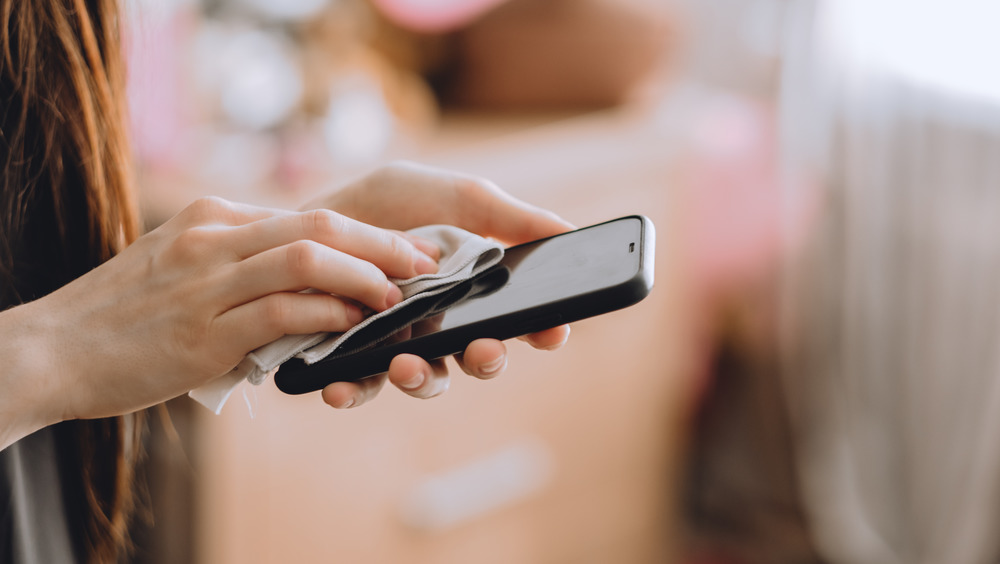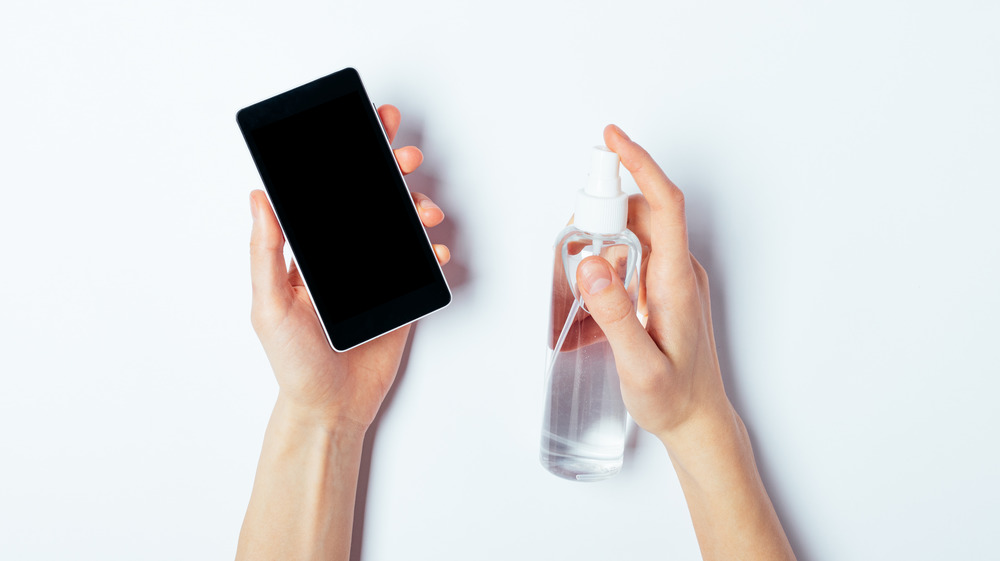This Is How Often You Should Really Be Disinfecting Your Phone
How many times a day do you touch your cell phone? According to a survey by Deloitte, Americans check their phones an average of 47 times per day — a number that's probably only increased since the study was released in 2017. The staggering number makes sense; these days, phones function not only as communication devices but as web browsers, cameras, and blackholes for Tik Tok scrolling.
Emily Martin, assistant professor of epidemiology at the University of Michigan School of Public Health, told TIME that "because people are always carrying their cell phones, even in situations where they would normally wash their hands before doing anything, cell phones do tend to get pretty gross." Think about it: many of us take our phones into bacteria-ridden places like the bathroom (don't deny it!) and public transit, and then mindlessly hop into bed or prepare food with them in hand. Because we're constantly touching our phones, they've become one of the dirtiest surfaces in the home. According to 2012 research by scientists at the University of Arizona, cell phones carry ten times more bacteria than most toilet seats. Ew.
So, how often should we be cleaning our devices? Read on for the surprising answer.
Experts suggest cleaning your phone more often than you might think
According to the Federal Communications Commission (FCC), you should be disinfecting your phone once a day. However, it's not as simple as wiping it down — it's important to know the proper ways to clean your device to avoid damaging it. You can find this by checking with your cell phone manufacturer. Apple and Android recommend similar procedures for cleaning, which include being sure to unplug your phone before cleaning, avoiding products with bleach, and keeping liquids away from any openings on the device (via Insider).
Since the COVID-19 outbreak, the Centers for Disease Control and Prevention (CDC) has released additional guidelines for cleaning mobile devices. Alcohol-based wipes or sprays are best, and they must contain at least 70 percent alcohol to be effective. The CDC also recommends some general practices for limiting your exposure to bacteria. For example, it's wise to use hands-free options when making phone calls to avoid placing your bacteria-ridden device onto your face. Further, the agency recommends keeping your phone put away when in public places, but that seems almost impossible in this day and age. If you need to use your phone when out, make sure to sanitize it and wash your hands as soon as you get home.

